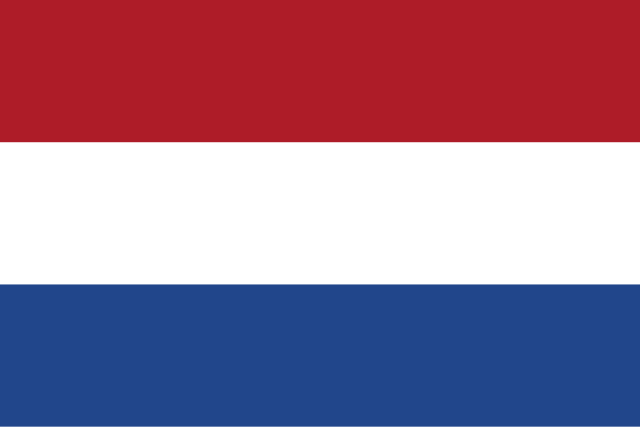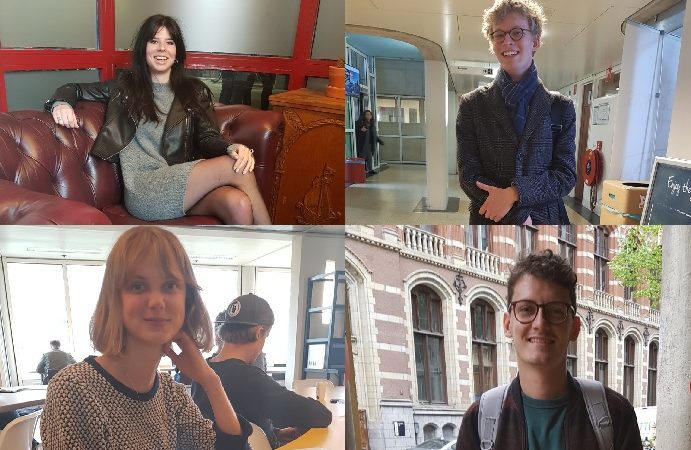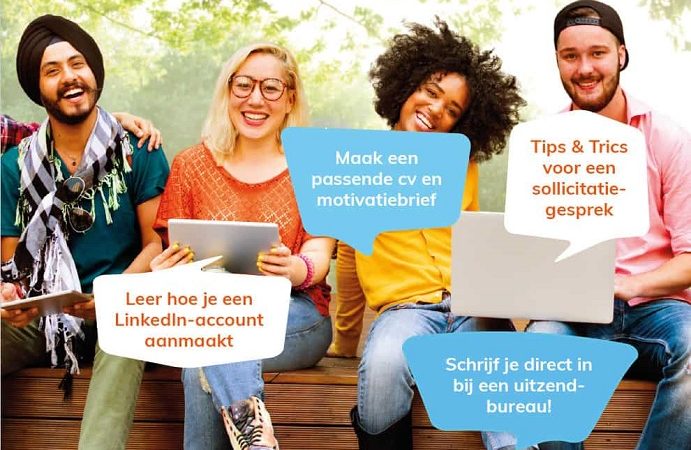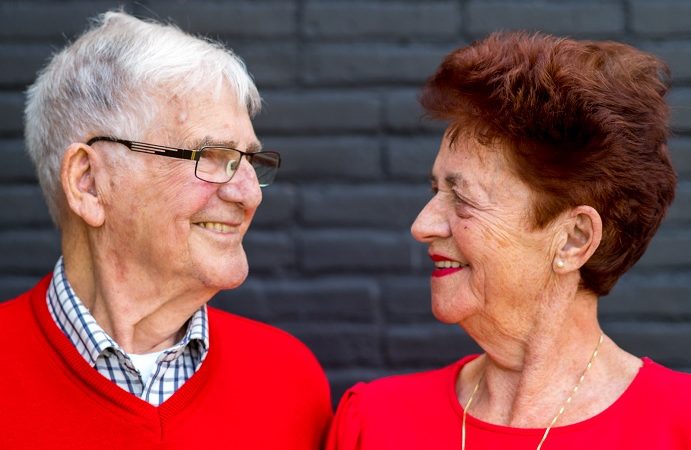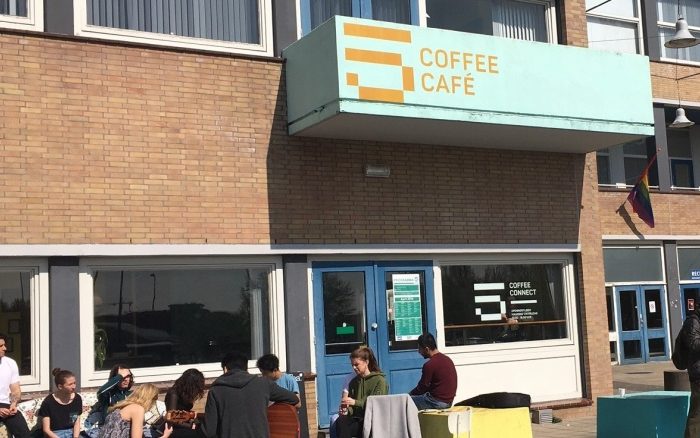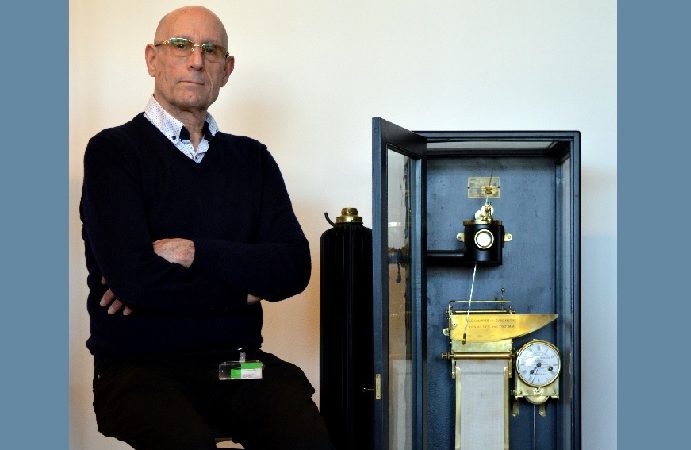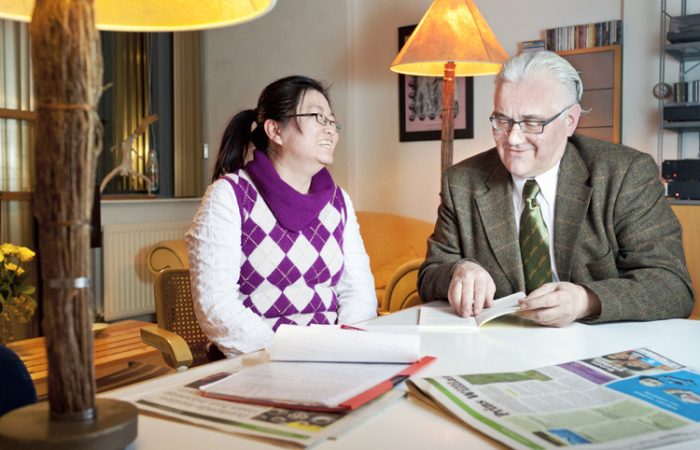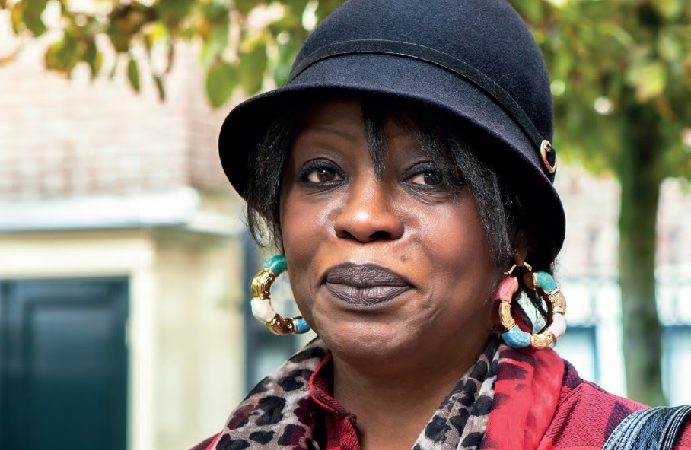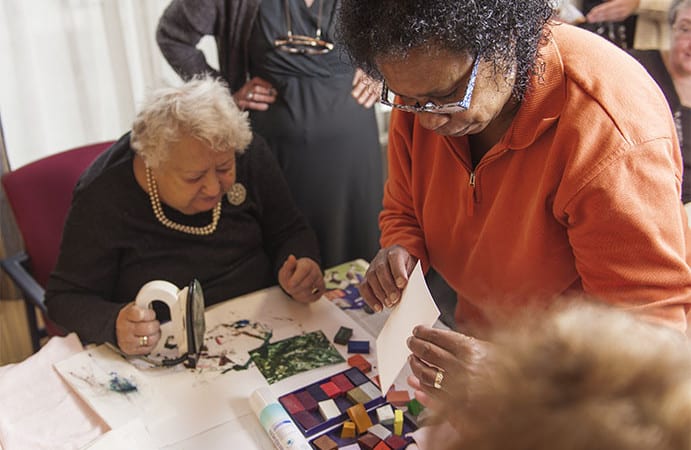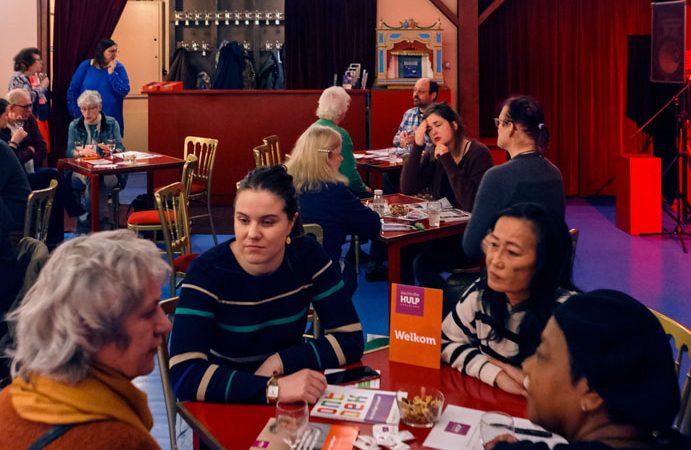We asked young people: “What is your perception of volunteering?”, “Have you ever done any volunteering?”, if no: “Have you ever considered it?” Here is what they said.
I have learned to focus my attention on what is possible.
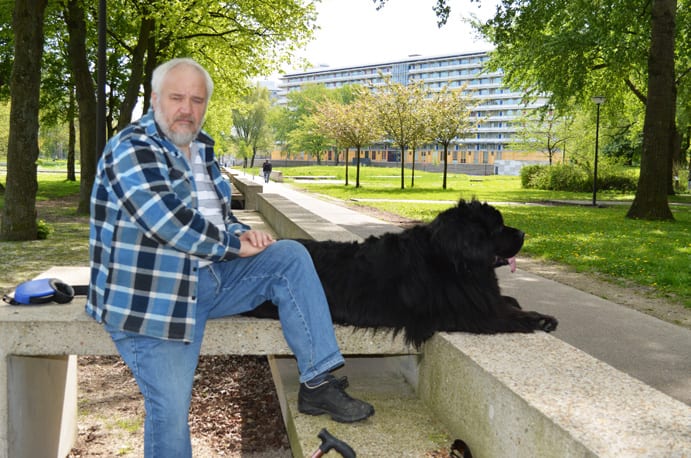
Lia Mast is a voluntary blogger for the project I find you! of Volunteer Center Amsterdam and Client Interest Amsterdam. The project helps people with physical disabilities find volunteer work. Elvira Jungslager is the project leader. Lia also has a disability herself. Part two: Interview with Hans van Lijf
Text: Lia MastI am speaking to Hans on the phone for the first time. “If you come to Kraaiennest, I will pick you up there by car. Let’s not make it more difficult than it is.” During the short ride to his house, he tells me all about the Bijlmer and his big dog, a Newfoundland. Upon arriving at his house, I meet his wife and his dog. It quickly becomes clear to me that these are the two most important women in his life.No gaps in my resumeHans is very open about his muscle disease, which he has had for a year. This causes him constant pain. As a truck driver, this is not easy. Because he also has tinnitus, a ringing in his ear, he can no longer practice his profession. “When an ambulance drives by, I still hear the siren going on for a long time. This makes me drive slowly because I’m not sure if it’s really a siren or if it’s the tinnitus.”
Now that it’s no longer mandatory, I can control it myself.
I ask Hans why he wants to do volunteer work. He tells me that after losing his job, he was assigned a case manager. This person guides him because he is on sick leave. “The reason I started looking for volunteer work is because he made it mandatory for me. It’s good to stay busy. If I could go back to work, I could prove that I want to. So, it’s actually to avoid having a gap in my CV. But my case manager has now decided that I don’t have to work, not even volunteer work. In the last six months, I have deteriorated so much. I used to walk three to four hours with my dog. Now I walk for ten minutes, then rest for half an hour, then walk back for ten minutes.”Voluntary volunteer“But I still want to do volunteer work. Now that it’s no longer mandatory, I can take control of it myself. I can now quickly say that I don’t want to do something if I’m afraid it won’t work out. I am now a voluntary volunteer,” he jokes.
Hans has signed up atI found you!because he wanted help finding volunteer work. Together with Elvira, he discussed his strengths and limitations. They went through the job board and found an interesting vacancy.
At the Oude Kerk, they already had people with physical disabilities and did not want to hire more.
“First, I searched viaI found you!I tried to do volunteer work at the Oude Kerk. I worked at the Maritime Museum for eighteen years. I started there as a gallery attendant when I was 23, and when I left, I was working in the control room. At the Oude Kerk, I was going to help with exhibitions, work at the cash register, and provide supervision. Actually, very varied work. I talked to Elvira about it, and she mentioned that it fits well with my experience and it’s something new. I am very open about my disability, I want to clearly state what I can and cannot do. At the Oude Kerk, they already had people with physical disabilities and didn’t want to hire more. They were also looking for someone who could climb a ladder. I can’t do that, but I can do all the other tasks. I didn’t understand why that was such a big problem. Now it turns out that an artwork needs to be installed on the roof, which explains a lot.”Concealing LimitationHans tells me that he and Elvira decided to conceal his disability on the second attempt. They applied to the Animal Ambulance. The Animal Ambulance’s process is very slow, taking weeks. First, they submit his CV and cover letter. After two weeks, he finally receives a response: ‘Sorry, it’s very busy. You also need to fill in a form.’ This is a standard form where you have to indicate your availability among other things. Instead of the minimum 20 hours every 4 weeks, Hans stated that he is available for 20 hours every week. “I did express my willingness to work.” He is still waiting for a response.
After two weeks, he finally receives a response: ‘Sorry, it’s very busy. You also need to fill in a form.’
I ask him why he would like to work at the Animal Ambulance. “I would like to do reception work there. Answering phones, scheduling rides. You also receive a course in animal first aid, which would be a real asset for me. There are also night shifts, where you have to provide first aid to the animals before the vet arrives. I don’t know how to care for a head wound in an animal. I have had first aid training for humans, and I once saved my dog. He had a bone stuck in his throat, so I performed the Heimlich maneuver. Of course, it’s all a bit different with a dog than with humans, but with a bit of logical thinking, I managed to do it.”Good and bad daysEven though Hans only got sick a year ago, I notice that he knows his limits well. He finds it difficult to accept, he says. But I notice that he can easily talk about all the things that don’t work out. We talk about the unpredictability of things, sometimes you don’t know how a situation will turn out. Stress also plays a big role in having a good or a bad day. Hans wants to make sure he can keep his promises even on a bad day.
What I like about the buddy project is that I can always do that. Even if I have a bad day.
Outside of our project, Hans has still found volunteer work. He signed up for a buddy project at De Zonnebloem, and is now being matched with a participant. “What I like about the buddy project is that I can always do that. Even if I have a bad day. The beauty of De Zonnebloem is that it works with departments. The participants, the people looking for a buddy, are local residents. In Amsterdam, we decide how often we want to visit. If we get along, I can easily come by once a week. After all, it’s always just around the corner. I have unsubscribed from other projects, such as holiday weeks and recreational days. That creates too high expectations for a large group of people. On a bad day, I just can’t do that.”Victim SupportHans is a very easy talker. He quickly and willingly shares details about who he is and what he finds important. When I tell him things about myself, I notice that he can also listen well. He gives me tips and understands what I am struggling with. We also talk about the treatments he has undergone for his muscle disease. “You learn to look at things in a different way,” he explains to me. “I have learned to focus my attention on what is possible. During an integration process, I had a moment of realization. I enjoy guiding people, I am a guide. I have thought about becoming a mental coach. But the study is very expensive and it is difficult to find work in that field. I have also considered applying to Victim Support. But that seems a bit too heavy for me right now. Maybe in the future.”Lia Mast is a volunteer blogger for the projectI found you!from Vrijwilligers Centrale Amsterdam and Cliëntenbelang Amsterdam.
This project is finishedDo you have a disability and want to do volunteer work? The project I find you has ended, but you can still make an appointment for a mediation interview atone of our branchesWe try to find something for everyone that suits you and look at what you can do.
